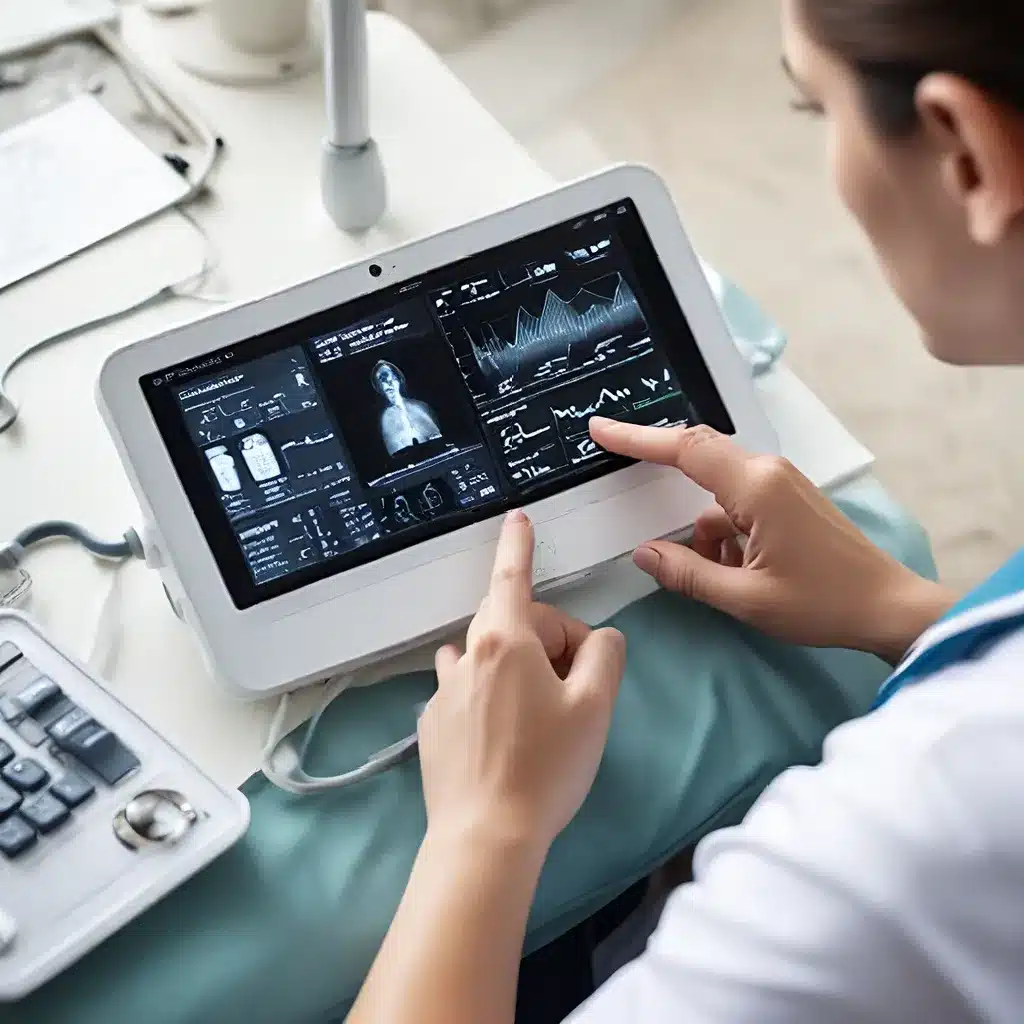
The Rise of Sensor Networks in Healthcare
Advancements in sensor technologies have revolutionized the healthcare industry, enabling remote patient monitoring and transforming the way we deliver care. Sensor-enabled healthcare monitoring systems are at the forefront of this transformation, providing healthcare professionals with unprecedented access to real-time patient data, leading to improved patient outcomes and more efficient care delivery.
These sensor networks leverage a diverse array of IoT (Internet of Things) devices, including wearable sensors, implantable devices, and environmental sensors, to continuously gather and transmit a wealth of physiological data from patients. This data can include vital signs, activity levels, sleep patterns, and even medication adherence, all of which are crucial for early detection of health issues and proactive intervention.
By integrating these sensor-based systems with advanced data analytics and machine learning algorithms, healthcare providers can gain deeper insights into a patient’s overall health status, identify potential risk factors, and make more informed decisions regarding treatment plans. This data-driven approach to healthcare has the potential to reduce hospital readmissions, prevent complications, and ultimately enhance the quality of life for patients.
Improved Patient Outcomes with Sensor-Enabled Monitoring
One of the primary benefits of sensor-enabled healthcare monitoring is the ability to detect and address health issues early on. By continuously collecting and analyzing patient data, healthcare providers can identify subtle changes in a patient’s condition that may not be apparent during traditional in-person visits. This early detection capability allows for timely interventions, which can prevent the escalation of chronic conditions and minimize the risk of adverse events.
Moreover, sensor-enabled monitoring can empower patients to take a more active role in their own healthcare. Wearable devices and mobile apps connected to the sensor network provide patients with real-time feedback on their health status, enabling them to monitor their own progress and make informed decisions about their care. This patient engagement and self-management can lead to improved adherence to treatment plans and better long-term outcomes.
Studies have shown that sensor-enabled remote patient monitoring can lead to a reduction in hospital readmissions by up to 25%, as well as a decrease in the length of hospital stays and fewer emergency department visits. These cost-saving benefits are particularly significant in an era of rising healthcare costs, making sensor-enabled monitoring a valuable tool for healthcare systems and providers.
Enhancing Care Delivery with Sensor Networks
Beyond improving patient outcomes, sensor-enabled healthcare monitoring also has the potential to transform the delivery of care. By providing healthcare professionals with real-time access to patient data, these systems can streamline clinical workflows and enable more efficient care coordination.
For example, sensor-enabled early warning systems can alert healthcare providers to critical changes in a patient’s condition, allowing them to respond quickly and intervene before the situation escalates. This proactive approach can reduce the burden on emergency services and free up hospital resources for patients who require immediate attention.
Furthermore, the data collected by sensor networks can be integrated with electronic health records (EHRs), providing a comprehensive view of a patient’s health history and facilitating better-informed clinical decisions. This data-driven approach to healthcare can lead to reduced diagnostic errors, improved treatment planning, and more personalized care for patients.
Research has shown that the integration of sensor data with EHRs can result in a 15% to 20% reduction in hospital readmissions, as well as improved patient satisfaction and enhanced communication between healthcare providers and patients.
Addressing Security and Privacy Challenges
While the benefits of sensor-enabled healthcare monitoring are clear, it is crucial to address the security and privacy concerns associated with these technologies. As IoT devices and sensor networks become more prevalent in healthcare settings, they introduce new vulnerabilities that must be mitigated to protect sensitive patient data and ensure compliance with data privacy regulations, such as the Health Insurance Portability and Accountability Act (HIPAA).
Cybersecurity is a critical consideration in the design and implementation of sensor-enabled healthcare systems. Robust encryption, secure data transmission protocols, and rigorous access controls are essential to prevent unauthorized access and data breaches. Healthcare providers must also implement comprehensive security policies and train their staff on best practices for data protection and device management.
Emerging blockchain technologies and edge computing solutions are being explored to enhance the security and privacy of sensor-enabled healthcare monitoring systems, providing decentralized data storage and distributed processing to mitigate the risks associated with centralized systems.
Powering Sensor Networks with Energy-Efficient Designs
The widespread deployment of sensor-enabled healthcare monitoring systems relies heavily on the availability of reliable and energy-efficient power sources. As these networks often involve large numbers of distributed sensors and IoT devices, traditional power grid-based solutions may not be feasible or cost-effective.
Energy harvesting technologies, such as solar panels, piezoelectric generators, and thermoelectric converters, are emerging as promising alternatives to power sensor networks in healthcare settings. These self-sustaining power sources can harvest energy from ambient light, motion, or thermal gradients, reducing the dependency on wired power connections and battery replacements.
In addition, advancements in low-power electronics and wireless communication protocols have enabled the development of energy-efficient sensor nodes that can operate for extended periods on limited power sources. Techniques like duty cycling, data compression, and adaptive sampling can further optimize the power consumption of these devices, ensuring reliable and sustainable operation of sensor-enabled healthcare monitoring systems.
The Future of Sensor-Enabled Healthcare Monitoring
As sensor technology and IoT continue to evolve, the potential for sensor-enabled healthcare monitoring to transform the delivery of care is vast and exciting. Emerging trends, such as 5G connectivity, edge computing, and artificial intelligence (AI), are poised to enhance the capabilities of these systems, unlocking new possibilities for personalized medicine, predictive analytics, and remote care delivery.
At https://sensor-networks.org/, we are dedicated to staying at the forefront of these advancements, providing our readers with the latest insights, innovations, and best practices in the world of sensor networks and IoT. We invite you to explore our platform and discover how sensor-enabled healthcare monitoring can improve patient outcomes and revolutionize the future of care.